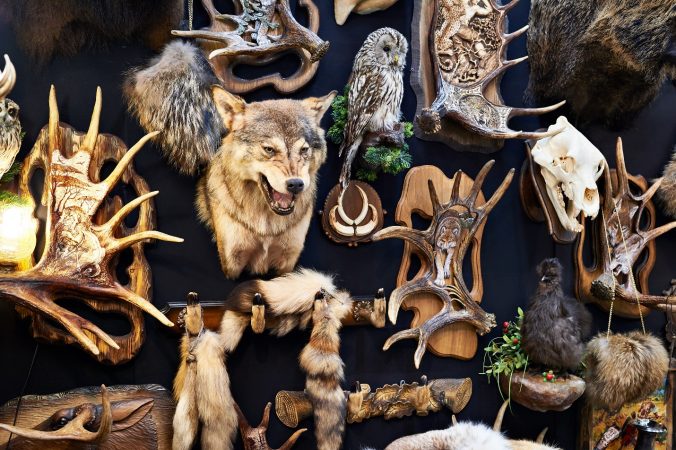You have no items in your cart. Want to get some nice things?
Go shopping
Designing a building with an eight-foot-tall display window in Kansas City, the tornado capital of the world, is just daring nature to do its worse. And tonight, as you’re locking the glass front doors at six, you see an enormous anvil cloud hovering to the south, beyond the construction site for the new mall. You look at the piano store across the street and imagine the wind picking up a baby grand and sending it spinning into this dry-cleaning shop like a hockey puck. It’s an image worthy of your journal.
You retreat to the steam-press table. From there, you can check on the cloud while working. It seems to be traveling from right to left, and anyway, you’re straight north of it. You’ve heard tornadoes can’t travel due north. You just hope tornadoes have heard this, too. You shuttle men’s pants and shirts in and out of the pressing table and watch sundown do its thing: gilding the flat bottom of the anvil cloud and accenting the granite-colored cumulonimbus mounting above it. Maybe you could write a story about a lone sailor appreciating a sunset like this while he tries to outrun a squall he suspects will kill him. It sounds a little Jack-London-ish, but perhaps you could do it stream-of-consciousness style. Maybe it would finally be the one you send to a literary magazine.
You move loads of clothing into and out of all the dry-cleaning machines along the back wall, trying not to breathe in their sweet, deadly solvent. When you turn back to the window, the view has changed. The air in the parking lot has gone purple and fat drops of rain are darkening the asphalt. The red and blue sign on the Chinese restaurant across the way glows in technicolour. The Purkinje Shift, you think, satisfied to have remembered the term. Then the rain really begins to pound, and there’s nothing to see outside the front windows but a curtain of grey. You focus on what you’re doing at the pressing table. If you can finish in three hours, there will be plenty of time to write tonight.
An hour later when you look up again, you say, “Whoa!” because there’s a luminous form standing in the semi-darkness outside the front doors. It’s a man wearing only shorts. When your eyes meet his, he taps lightly on the glass. It’s against the rules to let anybody in after closing, but no one should be left out in that storm. You hustle around the front desk, groping for the key in your pocket. As you unlock the left-hand door, you notice that what you took for shorts on the man is actually a loincloth, its white backflap hanging down well past his knees. Whatever this guy’s story is, you’re still letting him in. Heavy stuff could start flying around out there, and the threat of hypothermia is real, even in summer.
The air in the parking lot has gone purple and fat drops of rain are darkening the asphalt.
As he comes through the door, you see he’s middle-aged. Widow’s peak and a little grey in his dark hair. Short legs, broad belly, and a chest like the front of a tugboat. He looks like an old-time stevedore who could lift and toss you like an empty carton, so you start talking fast, mister friendly. You dash for a towel. Weird that he hasn’t spoken. He takes the towel, sizes you up with eyes the color of algae and then holds out from his left side a big white wing, maybe nine feet long.
“So, this one’s fine,” he says conversationally. “But this one needs a little help.” He unfurls a wing from his right side, and you see that the flight feathers at its elbow look tangled. He’s inviting you to laugh at his situation, like he’s split his pants or something. Strangely, the wings don’t shock you. A guy running around during a deluge in a loincloth is so odd that when you add wings to the picture, it’s a leap, but not an impossible one. He’s somehow familiar to you already with his slight Boston accent.
You look at the mangled feathers. “You want that pressed?”
It’s a question you ask dozens of times in your afternoon shifts, so it comes out naturally. He nods like an Indian chief, the crow’s feet by his green eyes crinkling. As you step past him on the way to the pressing table, you notice that the back of his loincloth is actually tail feathers. It makes sense aerodynamically.
You have him stand with his back to the table, hold out his right wing, and crouch. You position things so you’ll hit the messed-up feathers when you bring the top down. First you smooth them with your hands, which feels wonderful but doesn’t work perfectly. You hustle to the bathroom and come back with a comb – this is all going in your journal for sure. He has stayed in position, hands on knees like a shortstop. You press the pedal to release some steam, and then you work with just the last tooth of the comb to untangle the softened barbules.
So, it’s all true – God, angels, Jesus – I’m surprised,” you say.
“Yeah?”
“I mean, what about Vishnu, Allah, the great spirit, all the other gods? Are they, what, fake?”
“Not really. Just variations on a theme.”
He says this like a bored salesman explaining the differences between two similarly priced vacuum cleaners. You contemplate his answer as you continue your comb work. “Well, what’s God like, then?”
“Impossible to explain. Even we don’t get it.”
“We? You mean the angels?”
He nods and scratches his right shoulder just below an anchor tattoo.
When all the feather vanes are flat, you bring the top of the steam-press down for a count of five. You lift it, and everything looks good. You tell him to sit down awhile and let things dry.
As you make coffee, you think of calling your friends or taking a selfie with him. But maybe you should just act normal, ask about his job. When you return, he’s standing and looking into the distance with tremendous concentration. He seems to flicker. His skin has gone slightly translucent, and the posture of his head is like a hawk spotting prey. It’s scary for a moment. Then his skin changes back, and he stares at you. Suddenly, everything you’ve ever done – shared French fries, given a homeless guy a buck, peeked in a girl’s dorm window at night, charged gas on your parents’ credit card, watched TV rather than write, gotten high before work – it’s all right there, like, sitting on the steam-press table where you both can see it.
“Sorry,” you mumble, and the word sums up your entire existence prior to making this cup of coffee.
“Naw, it’s fine,” he says with a slightly pitying smile. “Just keep trying.”
There’s a burst of electronic sound from outside the shop. A police car has pulled up. You go to the front doors, wrestle one open in the wind. The cop lowers his window and shouts, “You have a safe place in there? We got tornadoes in the area.”
“Yeah, we’re fine. The bathroom’s reinforced, steel door.”
You return to the back of the shop, and the angel is gone. He probably headed for the rear door when the cop showed up. What a shame you never got to ask him more questions. As usual, you were pretending to be cooler than you really are. It’s your go-to move when you lack the guts to say what’s on your mind.
“Okay, if you don’t mind a tough question, why so many bad things?”
Then there’s a stirring by the hanging garment conveyer, and the angel pushes out from the forest of bagged dresses and shirts. The set of his jaw and the shield-pattern of his chest hair make him look like a conquistador striding out of a jungle. You have to laugh. He’s got an armload of laundry, which he drops into a rolling basket by the steaming table. He selects a blue and white striped men’s dress shirt and lays it on the open steamer. You press one sleeve and then the other. He lifts the shirt and lays it down again so you can hit the front panel and the placket. You could probably do it faster alone, but it’s great to see him trying to learn.
“Okay, if you don’t mind a tough question, why so many bad things? Why tornadoes, the bubonic plague, floods, ten thousand diseases – according to what I’ve read – childhood leukemia?”
“Honestly? Higgs boson,” he says as he peels up a white blouse and fits a hanger in it.
“What? How?”
“Well, I just mean, think of the physics standard model. It says quarks and muons have mass – finding the Higgs helped prove that – and once you’ve got gravity acting on mass at that scale to the exact level it does, things stick to each other the right amount. You get stars, planets – and planets with atmosphere. Earth’s in the perfect position, right? So eventually there’s life. Of course, life competes to fill every niche. So here come your bacteria and your viruses. What’s good for them is bad for you. The big structural forces? They’re relatively balanced off here, but not perfectly, okay? So, you get high winds now and then and shaky earth because the core’s still cooling. Believe me, everything’s much worse in a lot of the other universes.”
He lays a pair slacks on the open steam-press.
“We’re not the only universe?”
He nods, lines up the slacks’ seams, and lets you close the steamer.
“So, you’re saying God set up the principles and stuff, then – what – let it run on its own from there? Or is he involved?
“Depends on when you’re talking. He has a lot of projects other than earth now, but at the beginning, he – not really a he, by the way – was pretty hands on. He saw how brutal life was for folks, so he came up with angels to soften the worst of it.”
“That’s who answers prayers? Angels?”
He grunts as he pulls the slacks and hangs them up.
“Is that a yes or a no?”
“A yes, but it’s controversial. A union issue. Should we just answer prayers, or should we do what needs doing more generally – get out ahead of things?”
“A union? You’re kidding.”
“Well, the angels have had to organise and try to speak with one voice to get any consideration.”
“Consideration from God?”
He snorts and spreads a maroon silk blouse on the steam table. “We’re managed by a consortium of archangels and saints. Technically, it’s a noocracy.”
You press the blouse in silence. He appears to be thinking about something as he fits it on a hanger.
“I’m not supposed to say very much,” he says, “especially to someone like you, a writer.”
You can’t help but grin at this. All you’ve got is a journal and a few stories no one has seen.
“There’s a problem with staffing and mission. You’ve got seven billion people now. The number of angels has stayed constant since we broke the billion-person population level. Prayers are down per capita but way up overall. We’re supposed to answer as many legitimate requests as we can but also fix things along the way – just obvious stuff. So, that’s two jobs, times seven billion. Not realistic.”
“Doesn’t management want more angels?”
“They say they do, but then they talk about tradition and waiting for signals or permission or something.”
“Sounds like the Catholic church.”
“True.”
You show him how to bag and tag, while you stay on the steamer, and the pace picks up. “So what about Satan, is he real?”
“Definitely real but not quite the bad guy everyone says he is.”
“How so?”
“He and his crew just believe in laissez faire. He thinks the more we do, the less humanity learns to do for itself. He says the angels are actually retarding development, and he has got decent evidence for it. Just look at Holland. Almost totally atheist, and yet it’s one of the most functional and humane societies on earth.”
“Legalised prostitution?”
“Aw, that’s just for tourists.”
“Be. Good.” He says the words like they’re two separate ideas.
His views on worship are equally surprising. He calls it “touching, but beside the point.” And in response to your question about the existence of an afterlife, he says: Sick with exile, they yearn homeward now, their eyes turned to the ultramarine. It doesn’t make much sense to you. He admits it’s from a Derek Mahon poem. You decide to look it up when you get home.
He keeps working, and in exchange for hearing one of your stories, he tells you the inside dope on the miracle of the loaves and fishes. Basically, it was two angels with zero heads-up dashing around behind the scenes trying to scare up lunch for five thousand. Hectic but fun.
Hours go by and now you can’t hear the wind or the rain anymore. If the storm’s gone, it should be safe to fly, but you don’t want him to go. You say as much, and he replies, “Well, nothing’s forever, down here.” So, you just thank him. At the front doors, he gives you a hug, which feels amazing. While you’re in his embrace, your head fills with the sound of rushing water, seagulls, and beyond that, voices, the laughter of children, maybe the tinkling of silver on china.
“I don’t understand,” you whisper.
He lets you go and pushes open the left-hand door, then looks back. “Be. Good.”
He says the words like they’re two separate ideas. You follow him out into the wet darkness and watch as he unfurls his wings and starts a waddling run into the wind. The electric sign over the Chinese restaurant makes a popping sound, and you glance at it reflexively. When you look back, the angel is gone. You search the sky for a while. You’re crying, but it’s all right.




